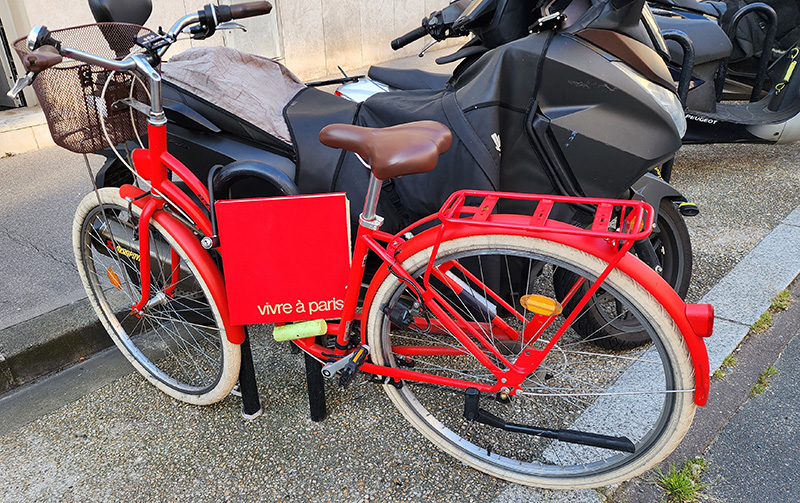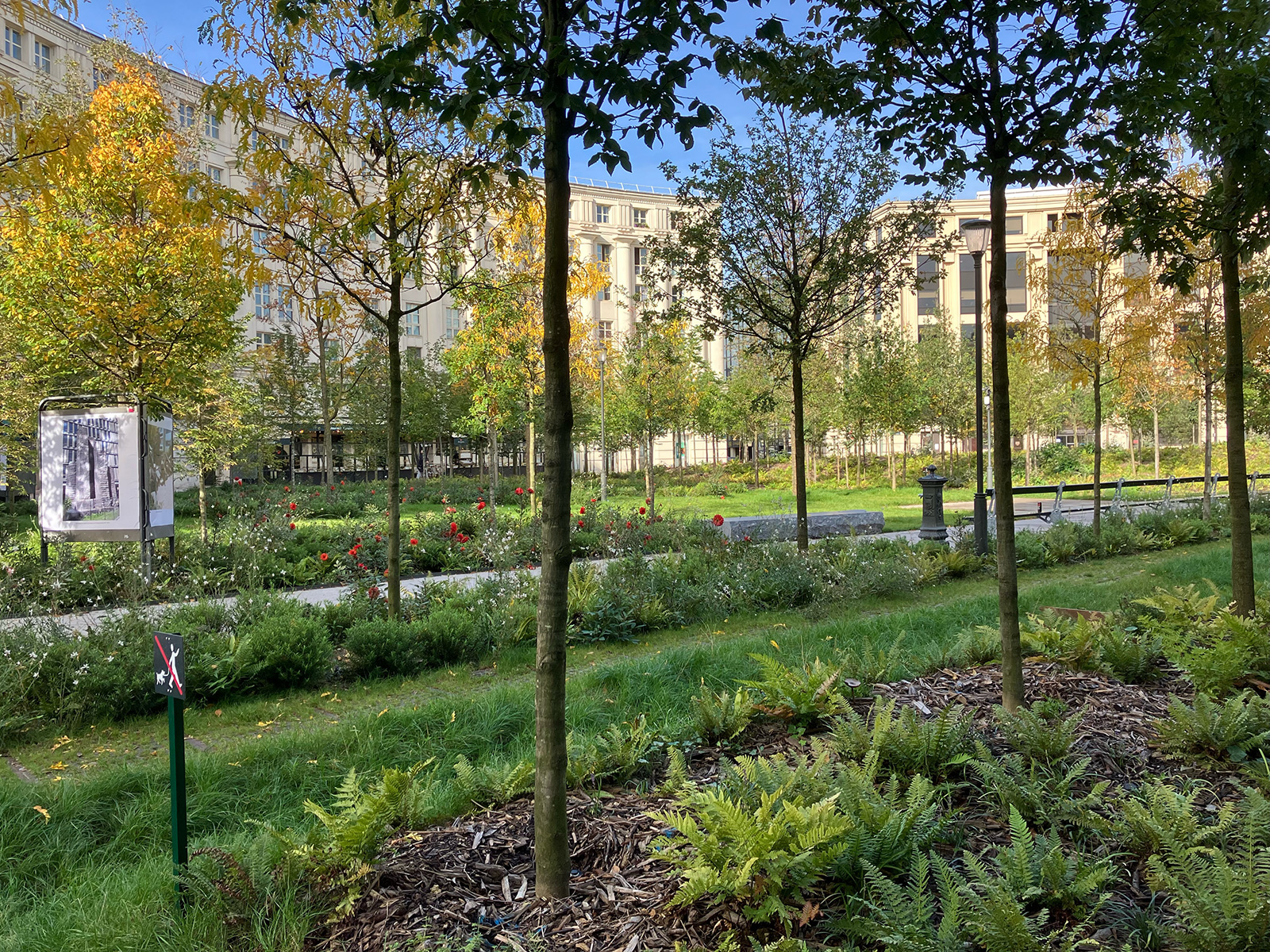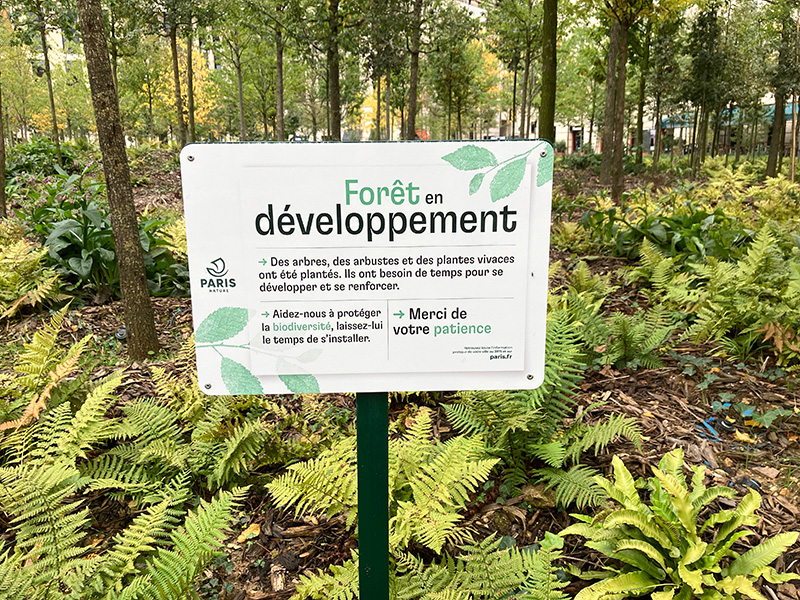Eco initiatives sparking a green revolution in Paris

[Image source: Jose Llamas on Unsplash]
Paris has been a beacon of sustainability for many years now, championing eco-friendly initiatives in our global fight against climate change. The goal is for the city to become Europe’s greenest by 2030 and, as the home of the Paris Agreement from the 2015 UN Climate Change Conference, it stands to reason that this city should lead the way and inspire others around the world to make ambitious changes. So, just how is Paris continuing its eco revolution and what can other countries learn from France when it comes to creating a sustainable future?
Examples of eco initiatives for green revolution in Paris
Incentivised electric vehicles
Paris has made significant investments in reshaping its transportation landscape to prioritize sustainability. Electric vehicles are heavily incentivized here, with a growing network of charging stations dotting the cityscape for those driving in the city. Perhaps most boldly, Paris has introduced car-free zones and low-emission areas, including plans to ban all combustion engine vehicles by 2030.
Cycle friendly
The city has dramatically expanded its network of bike lanes, now boasting over 1,000km of cycling paths, and implemented one of the world’s largest bike-sharing programs, Vélib’, which has been successfully running since 2007. Paris aims to be 100% cyclable by 2026 with more than 180,000 bike parking spaces.

Photo by FUSAC
Keeping cycles safe
In cities, bike theft is a major problem and one that becomes a bigger issue as governments push for a rise in cycling. According to research published by the Académie de Mobilités Actives, the risk of bicycle theft is « three times higher in Paris than in the rest of France, twice as high in Amsterdam than elsewhere in the Netherlands, and while robberies decreased by 43% in Denmark between 2010 and 2020, they decreased by only 25% in Copenhagen”.
One of the ways the city is tackling this issue is with Bicycode marks, implemented by the French Federation of Cyclists (FUB). Thousands of bikes have been successfully returned to their owners thanks to these marks – a unique number which is engraved on the side of your bike and is then registered on the Bicycode platform. Another solution proposed is GPS trackers which could be the future of mobility, since locating the stolen bike is often the largest part of the problem.
The 15-minute city
This concept centers on the importance of mobility, with the 15-minute city promoting hyper proximity. The aim is for key amenities like transport, schools and shops to be within 15 minutes of homes, to reduce carbon emissions by encouraging cycling and walking. These initiatives not only reduce carbon emissions but also improve air quality and promote a healthier, more active lifestyle for Parisians.
Waste management and circularity
Paris is at the forefront of the zero waste movement, with innovative recycling programs in place and stringent policies for reducing plastic waste. Repair cafés, known locally as ressourceries, have flourished across the city to teach people how to repair their items before throwing away, and secondhand markets have become immensely popular, encouraging residents to opt for a circular economy where possible. Research shows that it’s working—in 2023, 71% of consumers in France, Germany, the UK and the US bought or sold used goods, resulting not only in cost savings but the prevention of waste.
Greener streets
Paris is becoming greener not just on its streets, but also in its skyline and unused spaces. The city has welcomed the concept of vertical gardens and green rooftops, with landmarks like the Musée du Quai Branly illustrating how nature can blend seamlessly with urban design.
Urban farming has also flourished, with rooftop vegetable gardens and community plots popping up all over the city. Through the Parisculteurs initiative, Paris plans to cover 100 hectares of buildings with greenery by 2026.

The new urban forest on Place de Catalogne. Photo by Lynn Rovida
Urban forests
What’s more, Paris is pushing forward with large-scale reforestation efforts, planting thousands of trees every year and creating urban forests to mitigate the heat island effect and enhance biodiversity. By 2030, over 170,000 trees are expected to be planted, aided by updated building regulations that encourage residents to plant trees in their neighborhoods.
The Place de Catalogne has undergone significant changes, with the iconic « Le Creuset du Temps » fountain replaced with a new design that better complements the square’s urban forest theme. The square now features a diverse range of trees and shrubs, providing shade, improving air quality, and creating a more inviting atmosphere. Place de la Concorde has also undergone a significant transformation. Following the Olympics, a portion of the square is intended to remain closed to cars, creating more space for pedestrians, cyclists, and green areas.
The redesign will incorporate various green elements, with plans currently focused on this area to become a forest, but the reality may be closer to the edges of the square and the Champs-Élysées, which runs from it. This transformation aims to create a more attractive and inviting public space for both residents and visitors to enjoy.

Growing in progress. Photo by Lynn Rovida
Car-free consequences
But it’s not always the right move. Grenoble in southeastern France has been a pioneer in urban planning, experimenting with car-free zones in its city center. While the initiative aimed to reduce traffic congestion, improve air quality, and create a more pedestrian-friendly environment, it faced challenges.
Some businesses, especially those reliant on car traffic, experienced a decline in revenue. Additionally, the reduction in central traffic led to increased congestion and noise in surrounding areas. These unintended consequences highlight the complexities of urban planning and the need for careful consideration of both environmental and economic factors when implementing such initiatives.
The importance of ecology in local politics
Although Paris has implemented a wide range of initiatives to reduce its carbon footprint, environmental issues are often not prioritized in local election campaigns, and this has a knock-on effect in other areas. There’s a significant gap between the city’s green policies and the political narrative. While Paris continues to push forward with sustainability projects, many politicians remain cautious about making environmentalism a key focus in their platforms. There still remains the fear that it could alienate certain voter groups or be overshadowed by economic concerns.
This hesitancy contrasts with the increasing public awareness of environmental challenges. The situation in Paris mirrors a global struggle to integrate long-term ecological strategies into short-term political agendas. However, as the benefits of green initiatives become more evident, there is growing recognition that ecological policies are not only essential for the environment but also politically feasible.
When discussing climate change, there’s often a strong emphasis on energy-related aspects—such as energy consumption, efficiency, and renewable sources. But true sustainability encompasses much more. It’s now understood that climate change, biodiversity, and air quality are deeply interconnected, making it a crucial relationship to consider when policy making.
The economic case for ecological initiatives
The perception that ecological initiatives come at the cost of economic growth is rapidly being debunked in Paris. The city’s green revolution is creating a surge of jobs in sustainable sectors, from renewable energy technicians to urban farmers, and encouraging people to move to the area as a result.
Moreover, Paris’s eco-friendly reputation is attracting environmentally conscious companies and investments, positioning the city as a hub for green innovation. The long-term economic benefits of eco initiatives, though harder to quantify, are substantial, from reduced health care costs due to improved air quality to lower energy expenditures and increased resilience to climate-related disasters. Paris is demonstrating that starting with ecological considerations can indeed lead to economic prosperity, creating a virtuous cycle of sustainable development.

Nancy and everybody else goes to the Louvre. Photo by FUSAC
How does tourism affect these plans?
Paris is one of the world’s most visited cities and as a result of that, it faces the challenge of overtourism—a phenomenon where excessive numbers of visitors overwhelm a destination, degrading the environment and quality of life for its residents. The environmental consequences of mass tourism in Paris are significant: increased pollution from transportation, strain on waste management systems, and pressure on natural resources.
To combat this, Paris is pioneering sustainable tourism initiatives. These include encouraging off-season visits to spread tourist numbers more evenly throughout the year, promoting lesser-known attractions to disperse crowds, and implementing tourist caps at popular sites. By addressing overtourism, Paris is not only preserving its cultural heritage but also significantly reducing the environmental footprint of its tourism industry.
Paris’s eco-initiatives represent a bold step towards urban sustainability, serving as a model for cities worldwide. The city’s approach demonstrates that with vision, commitment, and innovative policies, it’s possible to transform a centuries-old urban center into a beacon of sustainability. As Paris continues to evolve, its journey offers valuable lessons for other global cities grappling with similar challenges.
This article is by Dakota Murphey who is an established freelance writer based in the UK, with over 15 years of experience creating articles and winning content for a number of authoritative sites. She enjoys sharing her knowledge on a variety of topics ranging from travel, photography and sustainability through to company growth, business trends and branding. https://www.

